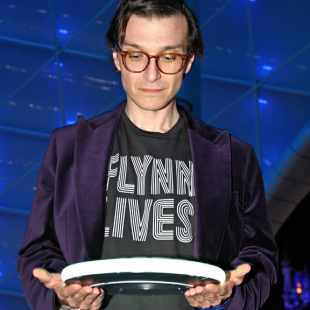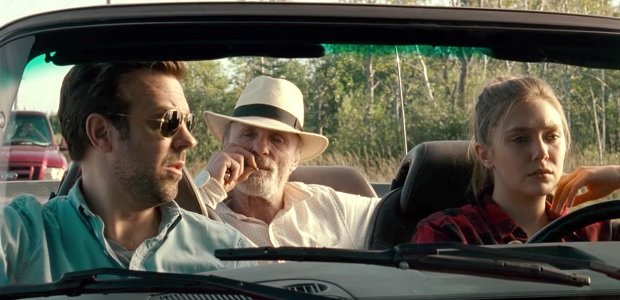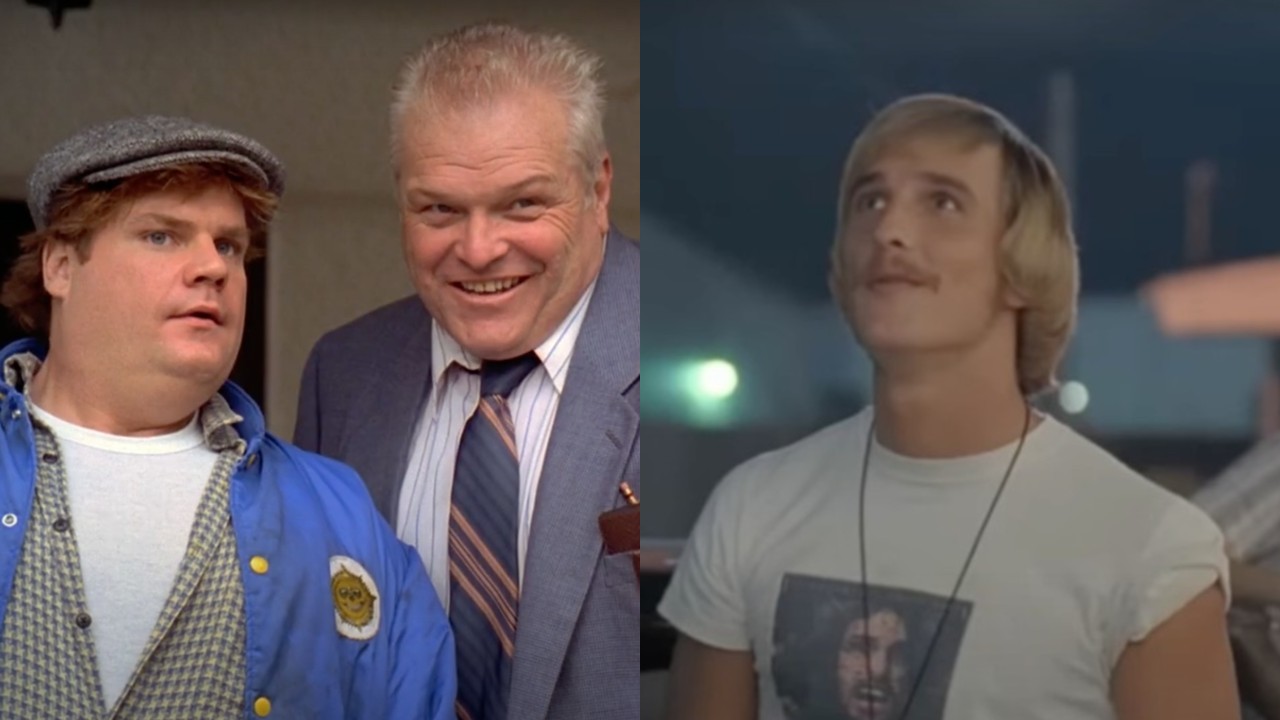Family is both who we are, and who we're going to become. Our legacies don't end with the work we've done, especially when we've given way to the generations that will succeed us. The subjects of legacy and leaving your best work behind are front and center in Kodachrome, Netflix's latest original drama film. While they do fuel the film's plot, they take a back seat to the interactions between the characters, as the cast within the film manages to lift up a plot that's slightly underbaked.
After years of estrangement, famed photographer Ben Ryder (Ed Harris) and his son Matt (Jason Sudeikis) are reunited for one last road trip. With the Kodachrome film system limited to one lab in the entire U.S., and Ben's terminal illness set to take his life in the ever-approaching future, the two adversaries set out on a trip to Kansas, with Ben's home care nurse / assistant (Elizabeth Olsen) in tow. Whether it be patching up their relationship, Ben trying to save his career, or their overall journey in general, it's clear that time is not on their side. So at the very least, they should try to be on each other's.
Kodachrome is a mixture of drama and comedy that doesn't always work. Sometimes the film plays with an angle that would have worked better in a comedy, and others it moves towards the project's more dramatic impulses. So the tone that is struck overall is a bit uneven, which leaves some threads unfulfilled and others a little enhanced. For instance, a brief detour into the lives of Ben's brother and wife, played by Bruce Greenwood and Wendy Crewson, feels more like a dramatic pit stop than a cathartic moment for Ed Harris's ailing photographer / cad. We never see those characters again, and the moments that occur between them and our functional leads don't lead to much fallout. If this were a longer movie, this may have been more of a moment; yet in a brisk sub-two-hour film, it's not much of a note.
While the story of Kodachrome may not be a home run, its cast and their performances are certainly worth raving about. Jason Sudeikis rides a natural line between smart-assed comedy and expressive drama, as a man who turned his back on normal life a long time ago, and he meshes with Ed Harris's similar nature, leading to the perfect tug of war between the two leads. For most of the film, it's Sudeikis who gets the heavy lifting, which leads to the dynamic shifts more towards Harris in the second act or so, paying off the film's redemptive journey. And in the middle of the two is Elizabeth Olsen, who does a fantastic job of playing a typical love interest that helps heal the wounds between the two, and even gets under the skin of our male protagonist.
Perhaps the ultimate testament to what Kodachrome is going for comes at the very end of the film, when the fact that it was "shot on 35mm Kodak film" is displayed on the screen. Director Mark Raso and writer Jonathan Tropper set out to make a film that commemorates memories, and the fact that tactile film helps remind us that they happened in reality, rather than a digital uncertainty. While the film doesn't delve into it too deeply, the undercurrent of "analog versus digital" does sit deeply at the root of this film. And it's that message that leads to a moment so moving in the third act, that I couldn't help but cry. It's a moment that completely symbolizes what Kodachrome is all about, as the film, and its cast, take a standard story and crafts it into something that is rather enjoyable, if not a bit underwritten.

Mike Reyes is the Senior Movie Contributor at CinemaBlend, though that title’s more of a guideline really. Passionate about entertainment since grade school, the movies have always held a special place in his life, which explains his current occupation. Mike graduated from Drew University with a Bachelor’s Degree in Political Science, but swore off of running for public office a long time ago. Mike's expertise ranges from James Bond to everything Alita, making for a brilliantly eclectic resume. He fights for the user.











